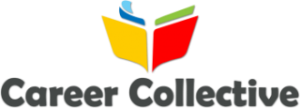Have you seen the specimens staring at the laptop and coding all day long? Mostly called a “Tech geek”. One day you cared to see the screen, and it made no sense to you. Well, only the computer makes better sense of it apart from the software developer who writes it.
Frankly, every domain adopts a software program. For instance, design software like “Autocad” relevant to civil and mechanical applications, the rocket that Elon Musk tests for space missions, the medical devices that test your heart rate, or a Tally software that is used for accounting are all developed by a software developer.
What is Software Engineering?
Before you begin sketching a design, you’d first conceptualize it, following specific design principles to achieve the desired outcome. Similarly, software developers approach a software development project in the same way. Software development follows a lifecycle, and throughout this process, engineering techniques are applied to guide the development. This systematic approach to creating software is known as Software Engineering.
What Does a Software Developer Do?
Imagine you’re a software developer or engineer at a company, and your manager asks you to create a product or platform based on specific requirements. Before diving in, you would first analyze these requirements. Next, you’d design the workflow and tasks the software needs to perform. Then, you’d begin developing the software from the ground up according to the plan.
Of course, what’s developed needs to be maintained and tested to ensure it’s efficient and effective. Finally, you’d evaluate its performance to ensure accuracy. Throughout this process, you’d keep your manager updated at each stage of development.
It might seem straightforward, but this process is iterative and continuous. Software is refined through cycles to reach its optimal performance and meet the end-user’s needs, making it user-friendly and reliable.
In summary, a software developer’s role involves analyzing, designing, developing, maintaining, testing, and evaluating software throughout its lifecycle at each iteration. This brings us back to the fundamental question: “How do you become a software developer from scratch?”
10 Tips to Become a Software Developer
If you’re keen to start your journey as a software developer, here’s what you need to know:
1. Pursue a Computer Science-Related Degree or Certificate
2. Learn a Programming Language
Programming is the core skill of a software developer. If you enjoy problem-solving, mastering programming will become easier with practice. Learning a programming language is essential for interacting with computers. Here are a few key languages to consider:
- JavaScript: Often abbreviated as JS, it’s a client-side scripting language crucial for web development. Created by Brendan Eich in just ten days, JavaScript is used to control interactive elements on websites and is also useful for desktop and Android applications. Familiarity with JavaScript is essential for working with web development frameworks and tools.
- Python: Known for its ease of learning, Python is widely used in Data Science, software development, automation, and web development. It’s a great starting point for beginners.
- Go: Also known as Golang, this language was developed by Google engineers and is ideal for cloud-based programming, web development, and data science.
- Java: An object-oriented language used for developing Android, desktop, and web applications. Java’s “write once, run anywhere” feature makes it compatible across various platforms.
- C#: A general-purpose language developed by Microsoft for the .NET framework. It’s used in backend web development, Windows applications, and game development, offering features like faster compilation rates and component orientation.
3. Figure Out Your End Goals
Before diving in, clarify your career goals. If you aim to become a Data Scientist, focus on skills related to Python, SQL, Tableau, Machine Learning, and Excel, rather than JavaScript or HTML. If you aspire to be a full-stack engineer, concentrate on web and mobile development tools and frameworks such as HTML, CSS, JS, React, Node, and Flutter. Determine your career direction and tailor your learning path accordingly, exploring different domains to find the right fit for you.
4. Enhance Your Skills
To excel as a software developer, enhancing your skills is crucial. Here are some essential tools and knowledge areas to focus on:
- Git and GitHub: These version control tools are fundamental for tracking code changes. They help manage and document different versions of your codebase, making it easy to revert to previous states if needed. Knowing Git is particularly valuable, as about 70% of companies use it.
- Code Editors: Familiarize yourself with code editors such as VS Code, Atom, and Jupyter Notebook. These tools are essential for writing and managing code efficiently.
- Unix: Basic knowledge of Unix or Linux commands can be beneficial, especially if you work in a Linux environment.
- SQL and Databases: Understanding SQL and how to interact with databases is important, as most platforms involve data storage. Knowing SQL basics will help you perform necessary database operations.
5. Start Practicing in Your Developer Niche
To become proficient in your chosen field, practice is key. For instance, if you aim to be a Data Scientist, work on datasets from platforms like Kaggle to perform exploratory data analysis and create visualizations. No matter the niche, regular practice and problem-solving on coding platforms like InterviewBit can help you improve your skills and stay sharp.
6. Find a Community of Software Engineers
Join software engineering communities such as Stack Overflow, where you can connect with other developers, ask questions, and share knowledge. Being part of a community enhances your understanding and skill development, as you can both seek help and contribute solutions to others’ queries.
7. Make a Portfolio of Your Software Development Work
Building a portfolio of projects is crucial in the tech industry. Develop and showcase as many projects as possible to demonstrate your skills to potential recruiters. A strong portfolio serves as tangible evidence of your capabilities and can significantly enhance your job prospects.
8. Do Some Internships
Internships provide practical experience and a deeper understanding of real-world applications. Completing an internship, ideally lasting around six months, can complement your portfolio and offer insights into the industry, making you a more attractive candidate for full-time positions.
9. Certify Your Skills
While not always required, certifications can strengthen your profile, especially when you’re starting out. They validate your skills and reassure potential employers of your competencies, making your application stand out.
10. Ace Your Job Interview
With a solid portfolio, relevant internships, and certifications in place, focus on crafting a compelling resume that highlights your achievements and skills effectively. Prepare for interviews by showcasing your experience and qualifications clearly, as this is your opportunity to impress recruiters and secure the job you want.
Conclusion
Technology is constantly evolving, and in the near future, its influence will extend even further across all domains than it does today. As the market continues to grow and innovate, it will continually introduce new advancements and opportunities, reshaping industries and pushing the boundaries of what’s possible.




